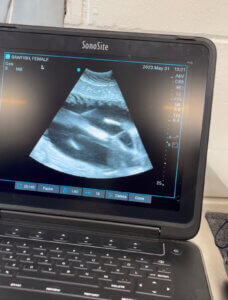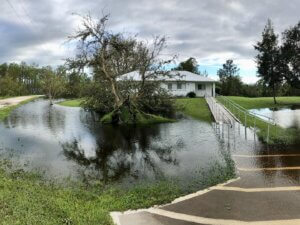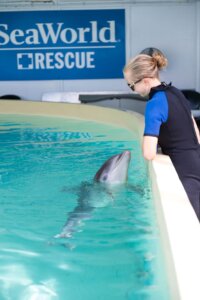In a continuing effort to support the conservation of marine life through research, SeaWorld and OCEARCH have renewed their multi-year partnership to gather critical scientific data in the study of keystone marine species in the wild. The partnership is focused in the areas of rescue, research, education, and policy to advance understanding and help ensure healthy and abundant populations.
SeaWorld and OCEARCH share research on tagged animals to make that knowledge widely available and utilize this science to protect and preserve marine animals.
Rescue – SeaWorld has rescued more than 40,000 animals and the knowledge gained from their rescue and rehabilitation has added vital knowledge to the conservation of their counterparts in the wild. Some of the animals rehabilitated and returned to the wild by SeaWorld are also tracked on OCEARCH's Global Shark Tracker, providing valuable, open-sourced data to the public. Both organisations will continue their work to utilise the open-sourced data from sampled and tagged marine animals to advocate for the protection of marine life.
OCEARCH Founder and Expedition Leader Chris Fischer said, "Our partnership with SeaWorld has been an important part of making our research possible. They’ve helped us build out and broaden our science disciplines to maximize the amount of knowledge and data we collect from every animal we sample and release. Their expertise in reproductive biology is leading the way in understanding how white sharks mate, reproduce, and give birth. We look forward to continuing to partner with them for many years to maximize the rate at which we can collect data to return our oceans to balance and abundance."
OCEARCH's popular Global Shark Tracker houses data on rescued, rehabilitated and returned marine animals. It offers both the scientific community and the public the ability to learn more about threatened and endangered species as they are given a second chance at life. Data on three of SeaWorld's rescued and returned animals – Gale, a pilot whale, TJ, a dolphin, and Iris, a harbor seal – can now be found at OCEARCH.org.
Scientific Study at Sea
Scientific study is conducted aboard a 126-foot research vessel M/V OCEARCH. It serves as a floating science lab and set out on its first expedition when the partnership formed in 2018.
In 2019, SeaWorld Veterinarian and Reproductive Physiologist Dr. Gisele Montano first joined OCEARCH during Expedition NASFA to study shark reproduction off the coast of the Carolinas. She continues to join the research team at sea on key missions.
During the expedition, Dr. Montano’s role onboard the OCEARCH Vessel was to ultrasound all animals and collect semen from mature male sharks. The unique aspect of OCEARCH’s Expedition NASFA to the Carolinas was to investigate the area as a possible mating ground for white sharks. The immense movement and track data Dr. Montano and her team received from their past tagged sharks concluded that both males and females spend some time near the coast of South and North Carolina during their yearly migration up the Northwest Atlantic coast.
The OCEARCH team and SeaWorld’s veterinarians, scientists and researchers work together on these expeditions to share knowledge and experience, which will contribute to their shared mission of continuing to educate future generations and advocate for ocean health and marine animal conservation efforts.



